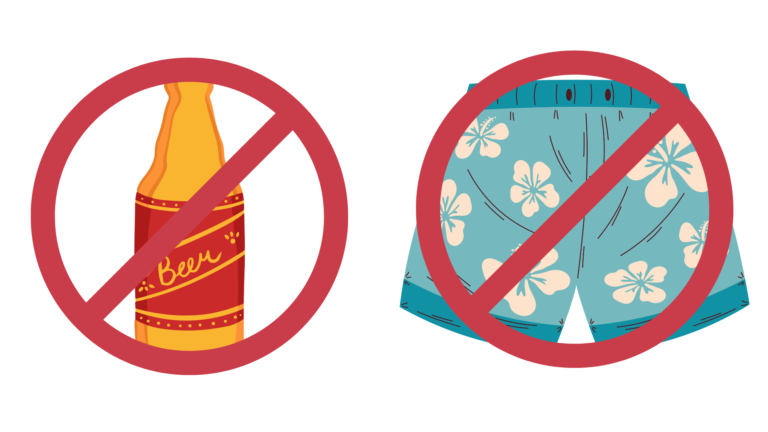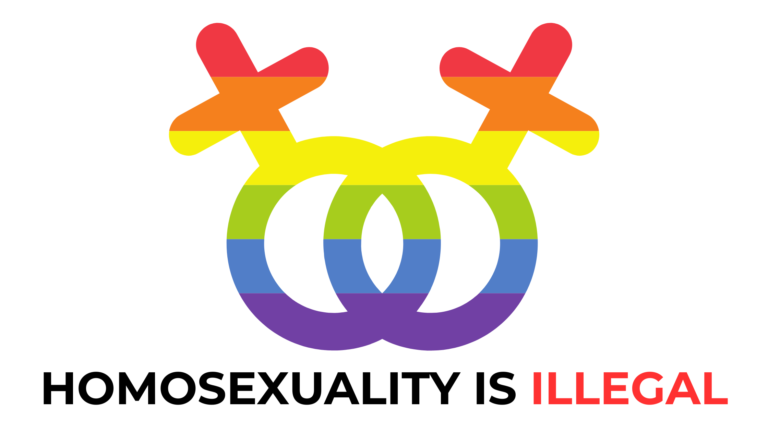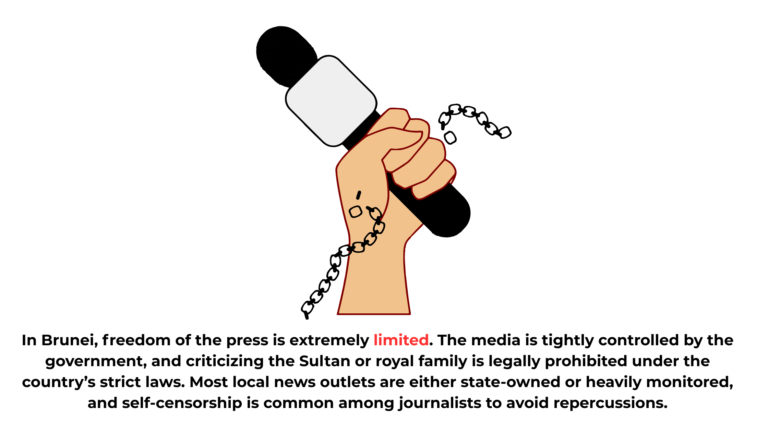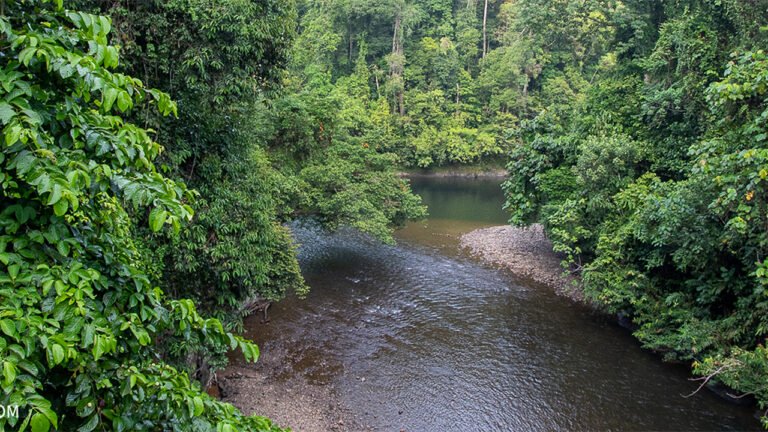Brunei: A Country of Comfort, Control, and Compromise

Published April 16, 2025
When people talk about Brunei, they often describe it in extremes—ultra-conservative yet incredibly wealthy, restrictive yet oddly peaceful. It’s one of those places that can be deeply misunderstood unless you take a closer look. So, let’s do just that.
Life in Brunei: The Rules Are Clear
If you’re thinking of visiting or moving to Brunei, you should know upfront—it’s not your typical Southeast Asian destination.
No alcohol. No nightclubs. No shorts (especially for women).

Homosexuality is illegal, and if proven, the penalty could go as far as death by stoning—though, to be fair, that’s rarely enforced.

Freedom of the press? Not here. Media operates under tight control, and criticism of the Sultan or government is strictly off-limits.

But before you write Brunei off entirely, there’s another side to the story.
What You Get in Return
For all its rules, Brunei offers comforts many countries struggle to provide:
Education is free.
Housing and food are heavily subsidized.
There’s no income tax.
The crime rate is impressively low. Most crimes are minor offenses like theft—so minor, the Supreme Court could practically be on a 12-year break.
And thanks to the country’s massive oil reserves, the government doesn’t rely on its people for money. They have state funds, and citizens only contribute about 5% to those.
Rich in Oil, Rich in Nature
Here’s something truly surprising: despite being an oil-producing nation, Brunei has preserved 60% of its land as virgin forest. No real estate developments. No industrial encroachment. Just untouched wilderness.

Pollution is nearly non-existent, and the roads are smooth and empty—comparable to those in Singapore and Germany. Imagine a place where traffic isn’t a daily nightmare.

Safe, But at What Cost?
Brunei’s capital, Bandar Seri Begawan, is described as calm, peaceful, and incredibly safe. People walk alone at night without fear. But with that peace comes some compromises:
Unemployment is high—around 8%. Not because there aren’t jobs, but because there’s a mismatch between what the economy needs and what young people are trained for.
Many young people aren’t motivated to pursue higher education or work outside elite sectors like Shell or government jobs.
Jobs like farming? Outsourced to foreigners. Locals see it as “low class.”
Still Under a State of Emergency—Since 1962
That’s not a typo. Brunei has been under a state of emergency for over six decades, and this has justified many of the country’s strictest laws.
There’s no opposition, no independent civil society, and media censorship is the norm. Free expression is limited—not just in politics, but also in arts and entertainment.
LGBTQ+ Rights: Legally Harsh, Socially Tolerant?
Brunei’s laws against homosexuality are among the strictest in the world. Yet, several LGBTQ+ locals have said that as long as you’re discreet, you’re left alone.
No denial of education, healthcare, or jobs—just an unspoken rule: don’t be flamboyant, and you’ll be fine. It’s not ideal, but it’s the reality.
Crossing the Border for a Drink
Want to drink or smoke? Cross over to Malaysia. That’s what many non-Muslim workers do. Alcohol is banned in Brunei, except for rare cultural festivals.
Drugs, of course, are a big no-no—including marijuana, even if it’s legal elsewhere.
Hollywood’s Boycott? Nice Try.
When Brunei’s anti-LGBTQ+ law made headlines, many in Hollywood called for a boycott. But here’s the thing:
Brunei doesn’t rely on tourism. They don’t even collect income tax. Losing a few Western visitors? That’s loose change to the Sultan.
If the world really wanted to send a message, they’d need to stop buying oil—but that’s unlikely. Our global dependence on fossil fuels makes Brunei almost untouchable.
Faith Above All
One of the most thoughtful conversations I had about Brunei came from a Muslim friend. He explained that for many Bruneians, faith comes first.
Even if modern life demands more liberal values, their belief system doesn’t change. What’s written in the Quran is final.
This isn’t about hate. It’s about deep-rooted values and respect for religious doctrine. Just as we in other countries have evolved our interpretations of religion, they have chosen to hold on to the original teachings.
So, What Do We Make of Brunei?
Brunei is a complex place. On one hand, it offers peace, security, and stability. On the other, it demands conformity and limits personal freedoms.
You don’t have to agree with everything. But to understand Brunei, you need to look at the full picture—the comfort and the control, the beauty and the boundaries.

